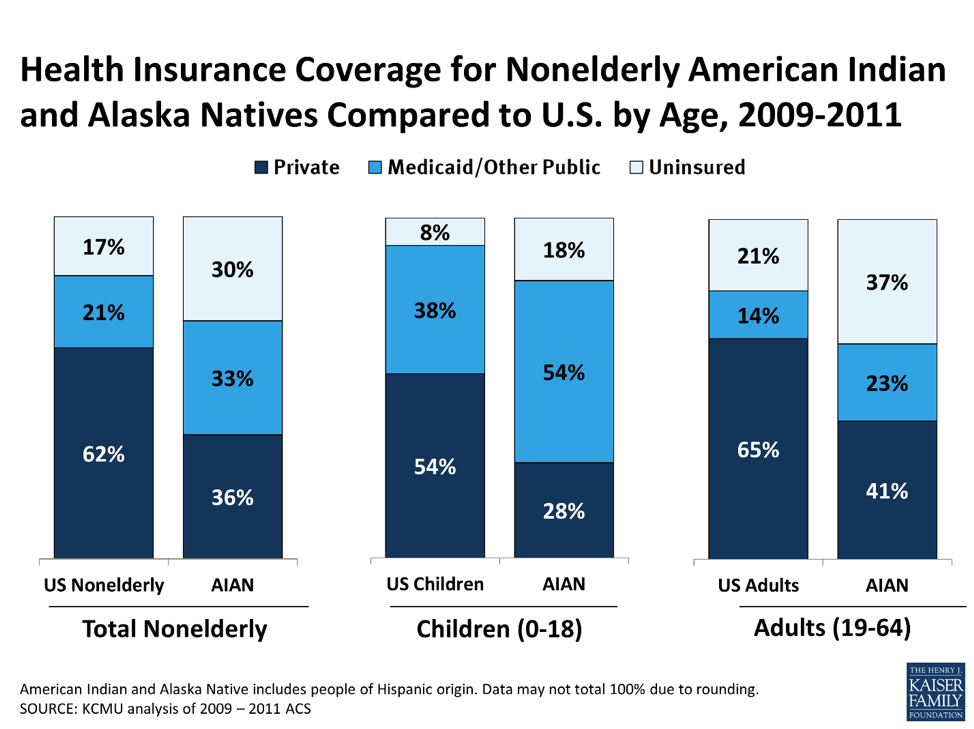
The Trump administrationsignaled in January that they would allow states to impose Medicaid work requirements for any able-bodied individual who can work. The administration has approved such waivers to implement work requirements for Medicaid in three states; nearly ten other states are seeking such requirements. Despite having devastating effects on those in poverty who rely on Medicaid to survive, there is another group of individuals that Trump has targeted with work requirements; the native population.
The administration has attempted to reclassify native tribes as a race rather than separate governments, and exempting them from Medicaid work rules would be illegal preferential treatments. The Health and Human Services Department has argued that “such an exemption would raise constitutional and federal civil rights law concerns.”
Seema Verma, administrator for the Centers for Medicare and Medicaid Services confirmed in January that the HHS believes that tribes are a race and not a separate sovereign government, thus not exempting them from Medicaid work rules.
The decisionignores the centuries old treaties that have been in place since the times of President George Washington, reaffirmed by both Republican and Democratic presidents like Clinton, George W. Bush, and President Obama. Constitutionally, native populations are protected as separate nations. Tribes also maintained that they have precedent when it comes to health care exceptions, as Native Americans do not have to pay penalties for not having health coverage under the Affordable Care Act’s individual mandate.
Mary Smith, who was acting head of the Indian Health Service during Obama’s administration and a member of the Cherokee nation, fired back, “The United States has a legal responsibility to provide health care to Native Americans. It’s the largest prepaid health system in the world—they’ve paid through land and massacres—and now you’re going to take away health care and add a work requirement?”
The Chair of the Tribal Technical Advisory Group, tribal leader W. Ron Allen,warned that without the exemption, “the Indian health system will not survive.” Most of the indigenous populations rely heavily on Medicaid resources, as unemployment and poverty on reservations are nearly three times the nation’s average (as high as 12% in 2016) since jobs are scarce. Lower federal spending on the Indian Health Service has also made many indigenous peoples reliant on supplemental Medicaid to fill in coverage gaps.
Arkansas, Kentucky, Indiana and ten other states who either have or are asking to impose work requirements on Medicaid recipients, have more than 620,000 Native Americans who could be severely impacted by the requirements. More alarmingly, more states could be heading towards demanding work for continuation of Medicaid insurance. Some states, like Arizona which has asked for permission to exempt Native Americans from their proposed work requirements, could have the exemption rejected by federal officials. With the current administration looking towards full welfare reform, which nearly 3 million Native Americans rely on, it would be disastrous to indigenous groups living on reservations.
Though it is the latest attack on the native population in the country, it is not an isolated one from Trump. Last year’s proposed budget from the White House significantly cut funding from the Indian Health Service (which thankfully didn’t pass). This year, the White House budget proposed eliminating popular initiatives like the decades-old community health representative program, essential for the native community.
Last month, HHS Secretary Alex Azar and Deputy Secretary Eric Hargan skipped HHS’ annual budget consultation with tribal leaders in Washington. Last year, then-HHS Secretary Tom Price joined in the meeting. Azar canceled last minute, and Hargan fell ill, leaving Associate Deputy Secretary Laura Caliguri to participate in their place.
The HHS’ civil rights office—while rejecting the Medicaid exemption—simultaneously announced new protections sought by conservative religious groups. The new protections would give health care workers who don’t want to provide abortion care, treat transgender patients seeking to transition or provide other services, a license to discriminateunder religious or moral grounds.
Work requirements are only the beginning of the devastating effects an entire overhaul the welfare state would have on Native Americans. Having already shouldered the burden of America’s colonizing spirit, they will suffer from losing any protections that the country has given back in a pitiful act of reparations.